
FilePort Salut cheese.jpg Wikipedia
Le Port-Salut est un fromage à pâte pressée non cuite, doux et couvert d'une fine croûte uniforme de couleur orange. Il existe différents formats : 200 g, 320 g et 2,2 Kg pour la coupe. Il est également vendu en tranches préemballées. Il existe le "Port-Salut pause fondante", qui est le même fromage mais en forme allongée de baguette.

Fromage Port Salut 50 MG (185 g) Bam courses Vos courses livrées, MOINS CHÈRES qu'au
Port du Salut, Dès 1850, les Pères décidèrent d'agrandir les locaux de la fromagerie et de construire des caves d'affinage adaptées à la nature de la fabrication. Le lait de la ferme fut complété par une collecte organisée parmi les élevages voisins. La vente du fromage commença à se developper à Laval et les environs du.

Port Salut Semi Soft Cheese Reviews 2021
The term "Port du Salut Cheeses" is used to describe a family of cheeses which sprang from the cheese called " Port Salut .". These cheeses are also often called "Port du Salut style .". The rind on these cheeses is typically whiffy, and is not edible on many of them. All are semi-firm, so they can be sliced.

Port Salut Cheese 320g Villa Market
Experts often suggest oat cakes, and the French often serve 'plat de fromage' with no accompaniments at all. 4. The accompaniments…. for decoration and flavour! Grapes and fruit are often added to cheese boards. They bring a little extra decoration, as well as adding some contrasting taste and flavour. 5. Take them out of the fridge!
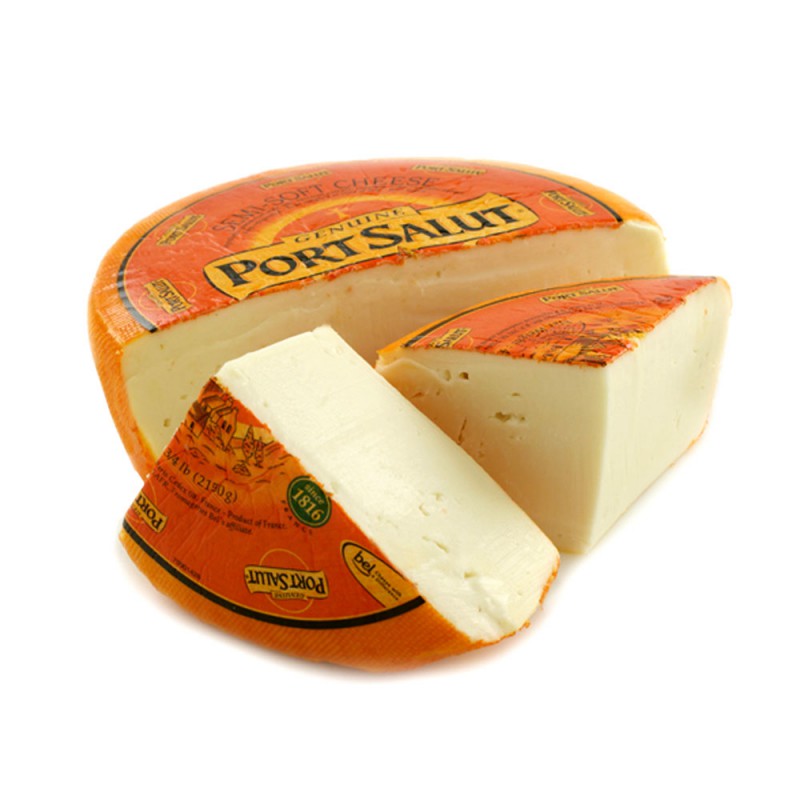
Port Salut Cheese Approx. 5 LbWheel Le village gourmet food
Port Salut. Port Salut is a French semi-soft cheese made from cow's milk. It was originally developed by Trappist monks in the 19th century at Port-du-Salut Abbey, hence the name of the cheese, which is characterized by its pale yellow color, a creamy, smooth texture, and mild flavor. During the original production, Port Salut was regularly.
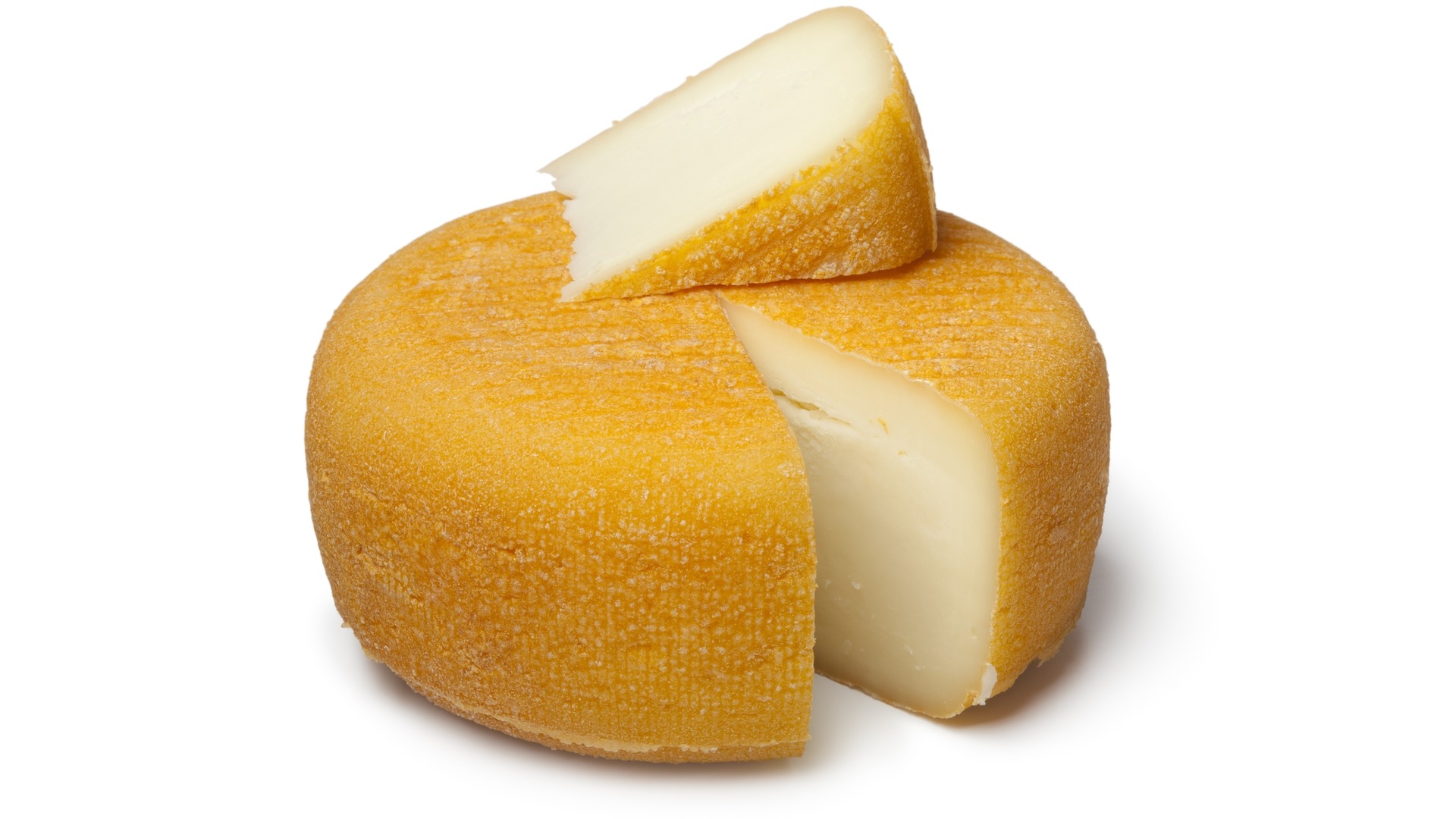
ARCHAEOLOGY OF CHEESE PortSalut Chef's Mandala
Esrom or Danish Port Salut cheese is a Trappist-style traditional, creamery, semi-soft cheese made from cow's milk. The cheese is named after an abbey where Cistercian monks first made it in the 12th century. The recipe was rediscovered in the 1930s and has achieved quite a bit of popularity. Said to be one of the top stinky cheeses in the world, Esrom indeed has a flavour that is quite rich.
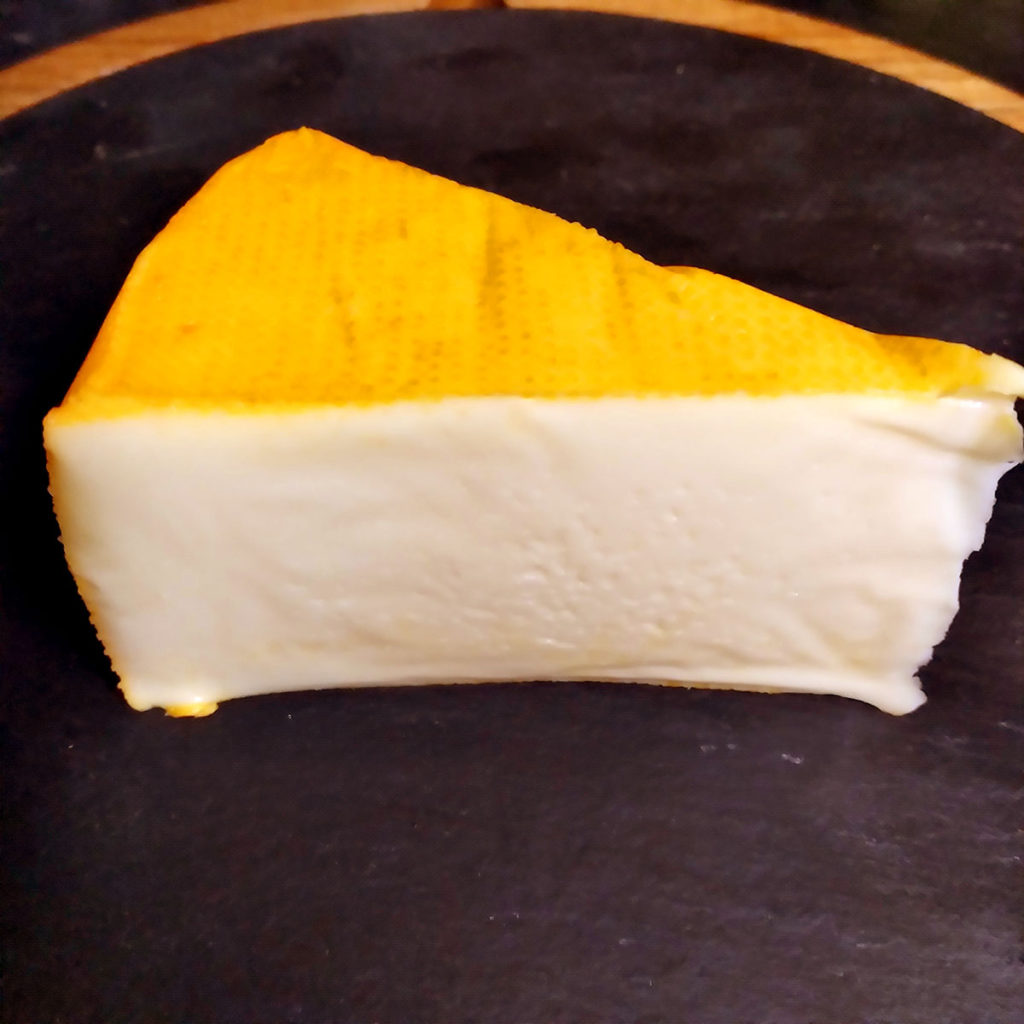
Port Salut (5.3 oz.) Fromageries Bel Adams Cheese Shop
A cousin to Port Salut, this cheese is made with pasteurised milk and has a washed rind. Curdled, stirred, drained, and bathed in brine, the crust has a touch of annatto to give it a distinctive orange tint. Saint Paulin spends three weeks in a ripening chamber. It is a subtle cheese, with a hint of sweetness and a taste of slightly acidulated.
Cannundrums Cheese Port Salut
Pont-l'Évêque (/ ˌ p ɒ̃ l ə ˈ v ɛ k, ˌ p ɒ n t-/, French: [pɔ̃ levɛːk] ⓘ) is a French cheese, originally manufactured in the area around the commune of Pont-l'Évêque, between Deauville and Lisieux in the Calvados département of Normandy.It is probably the oldest Norman cheese still in production. Pont-l'Évêque is an uncooked, unpressed cow's-milk cheese, square in shape.

Cheese, port de salut Facts In & Out Calorie Counter Calorie Food & Exercise Diary Tracker
Those like Port Salut have thin, barely formed rinds are generally mild and rich. The interior of those with thicker rinds is more supple, elastic almost volatile and the taste is earthy with just a hint of meadow flowers, becoming more savoury and intense. Typical Examples: St Nectaire, Reblochon, Raclette, Port Salut wedge. 3. Hard Cheeses
/SaintPaulin-56a7caea5f9b58b7d0edee43.jpg)
What Is PortSalut Cheese?
The original port salut, now sold as entrammes, has little in common with its current incarnation. Port Salut today is a pasteurized cheese with an orange, inedible rind (aged for only 1 month) and rubbery, yellow paste. The flesh of the cheese has a hint of nuttiness. There is a Canadian version of this cheese called Oka as well as a French.
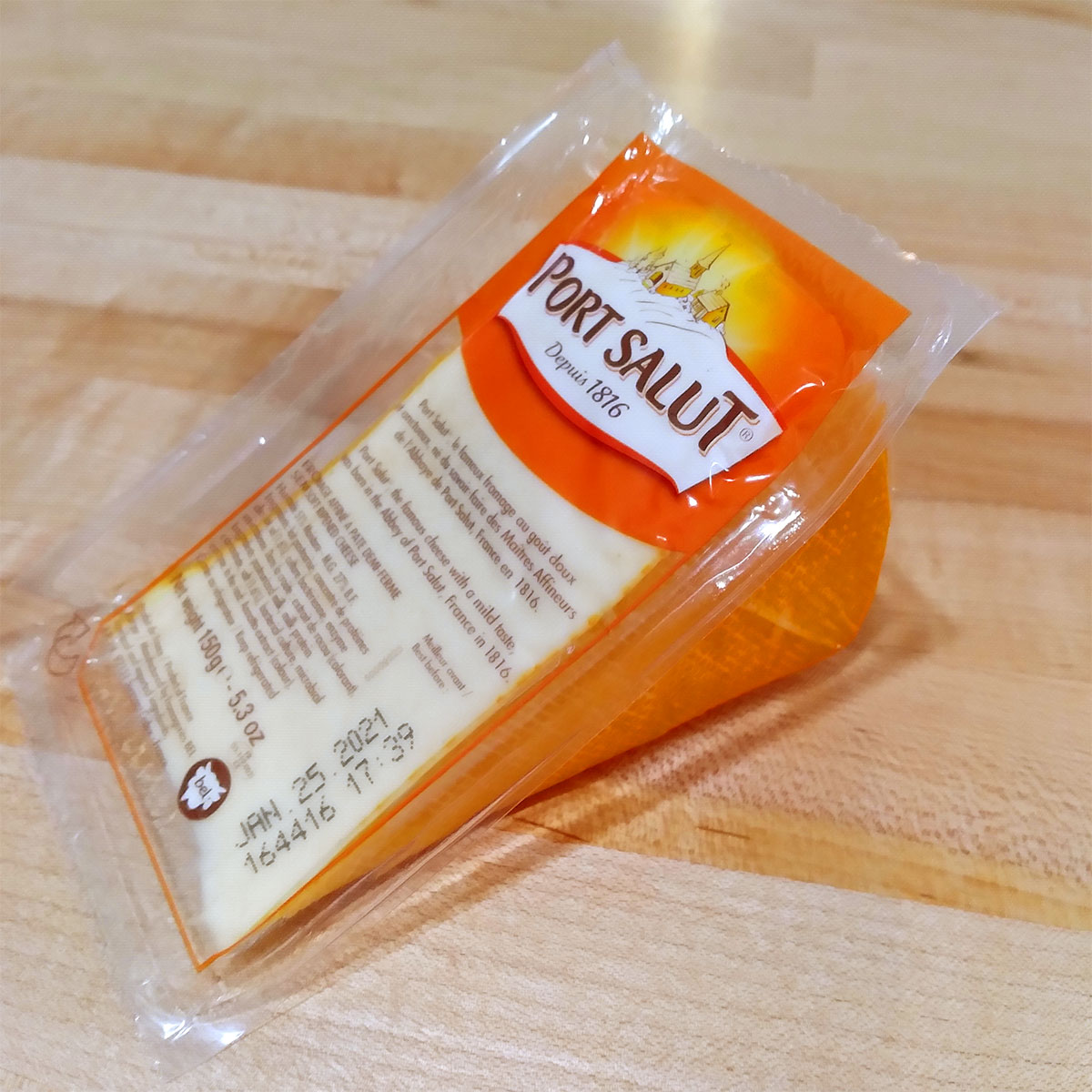
Port Salut (5.3 oz.) Fromageries Bel Adams Cheese Shop
Port-Salut. Port-Salut est une marque commerciale française apposée sur une série de fromages et préparations fromagères pasteurisés industriels fabriqués dans la Communauté européenne. Cette marque appartient à la société Bel Foodservice 1, filiale du groupe Bel . Cette gamme est issue d'une ancienne activité agricole des moines.

PORT SALUT Fromage au lait de vache pasteurisé 320g pas cher Auchan.fr
Port Salut. Port Salut is a semi-soft pasteurised cow's milk cheese from Pays de la Loire, France, with a distinctive orange rind and a mild flavour. The cheese is produced in wheels approximately 23 cm (9 inches) in diameter, weighing approximately 2 kg (4.4 lb). Though Port Salut has a mild flavour, it sometimes has a strong smell because it.
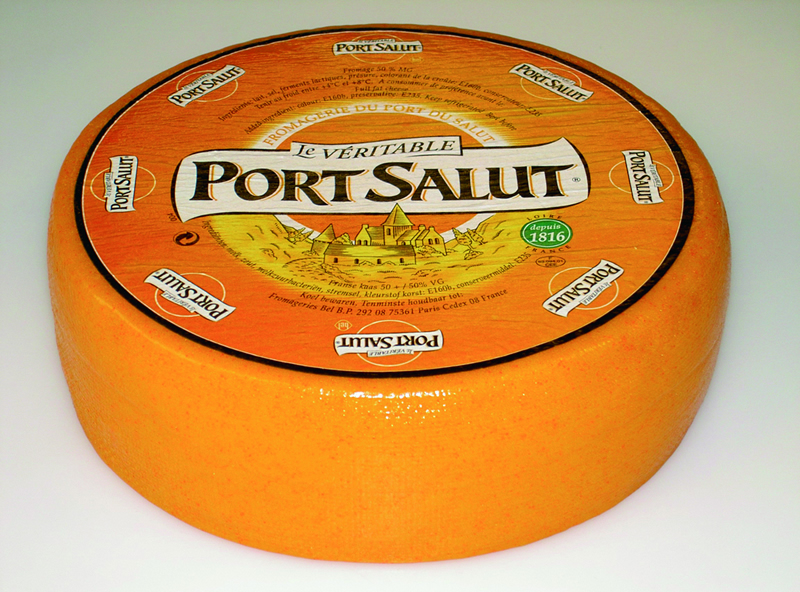
Fromage pate molle Croute lavée Fromage factice Port Salut
What Is Port-Salut? Port-Salut (pronounced PORE-sah-LOO) is a semisoft, velvety French cheese with a mellow, sweet-and-savory flavor. Perhaps the first cheese made from pasteurized cow's milk, Port-Salut originated in the Loire Valley, in a Trappist monastery in the Brittany region of France, during the middle of the 19th century.
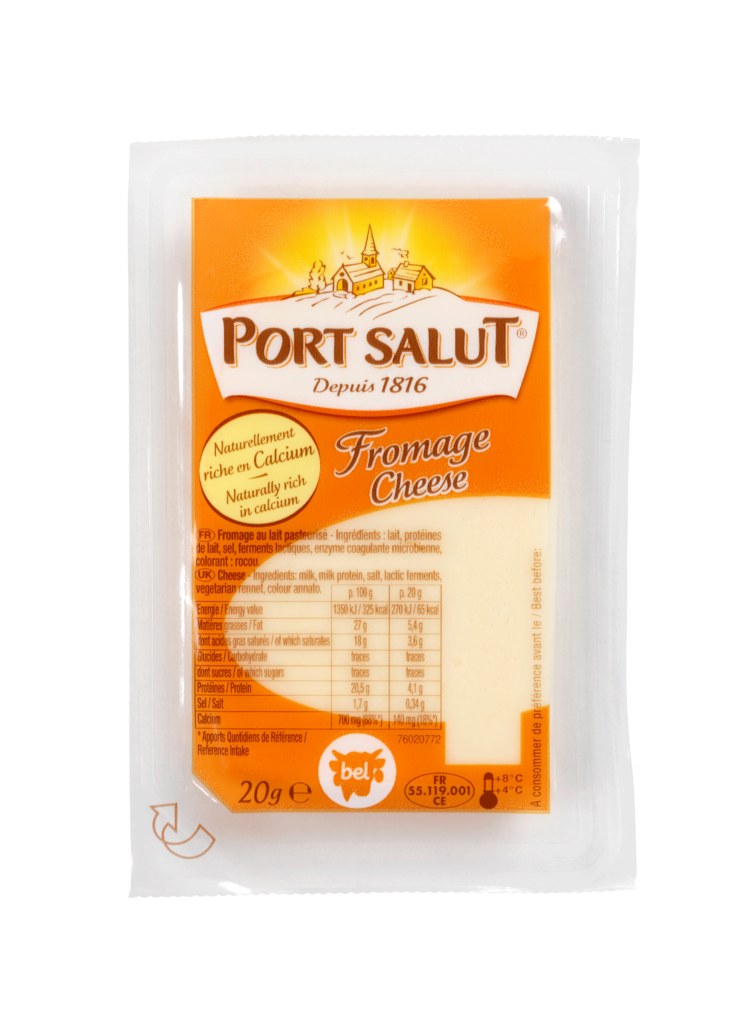
Port Salut® Portion 20g Bel Food Service
Much like Saint-Paulin, Port Salut (or Port-du-Salut) is a milder variety of Trappist cheese from France.. (per Le Guide du Fromage), this cheese has a pedigree for sure. The aroma of the rind.

Pin on Amazing Appetizers
Production. Port Salut cheese is made from cow's milk. The cheese is ripened from the outside in by a smear of surface bacteria. It used to be brushed with brine repeatedly during the aging process, which made it a washed-rind cheese, but this no longer happens, because the cheese is wrapped in plastic before aging.. It is the ripening process which makes the rind orange.
Cannundrums Cheese Port Salut
Port Salut cheese, also called Port du Salut, comes from Pays de la Loire, France. It is named after the abbey of Notre Dame du Port du Salut in Entrammes. The cheese with orange rind has a mild flavour, and the flavour increases the longer the cheese is kept. Made from pasteurised cow's milk, the cheese was produced by Trappist monks way back in the 19th century.